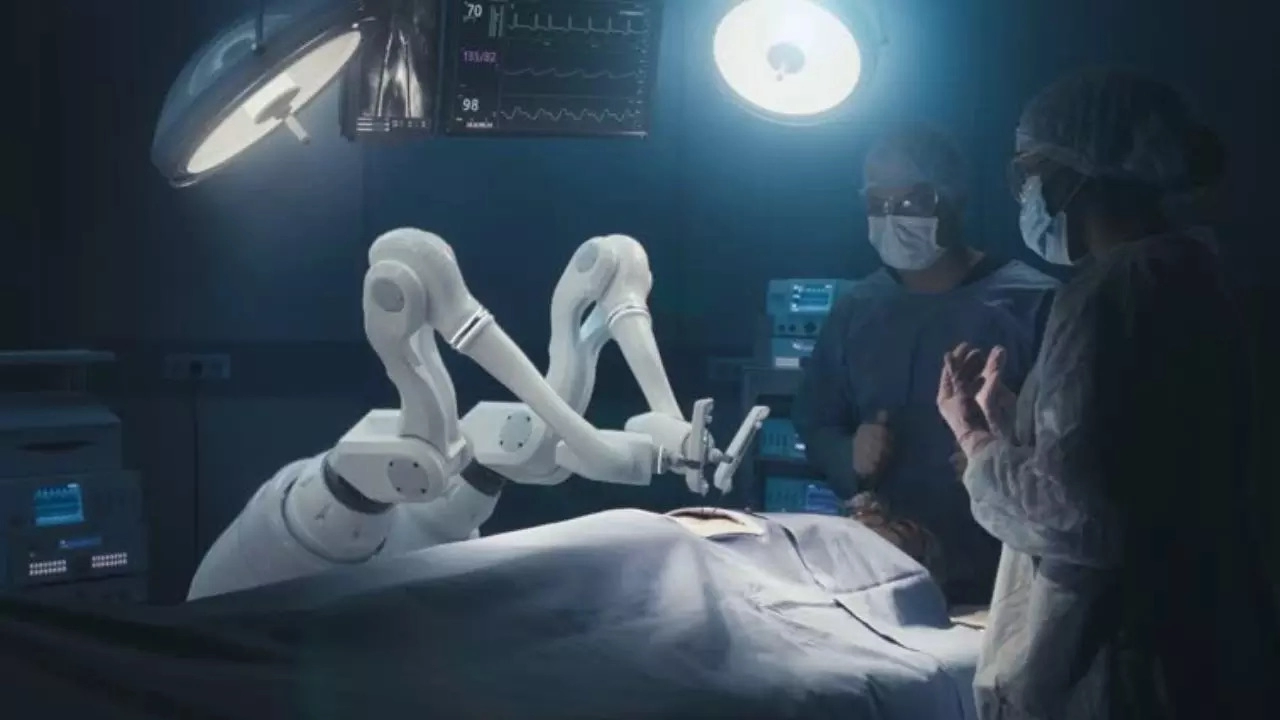Pallavi Mehra • 18 Oct 2024
How Robotic Surgery Is Lowering The Risk Of Postoperative Infections

How Robotic Surgery Is Lowering the Risk of Postoperative Infections (Image Credits: iStock)
With advancements in technology, robotic surgeries have come out as a boon for medical treatments. Earlier, there were surgical site infections (SSI) that occurred after surgery. These infections used to lead to severe complications, including increased antibiotic use, delayed recovery, and, in some cases, life-threatening conditions like sepsis. As per the International Nosocomial Infection Control Consortium, there are about 9.06 hospital-acquired infections (HCAIs) for every 1,000 ICU patient days. The infection rate can range from 4.4 per cent to 83.09 per cent across different hospitals in India.
Longer postoperative hospital stays, additional surgical procedures, longer recovery times, etc. can also greatly contribute to surgical site infections. So how robotic surgeries have changed this?
We got in touch with Dr Suresh Kumar D, Surgical Oncologist, Tamil Nadu Government Multi Super Speciality Hospital who shares that by using state-of-the-art robotic-assisted surgery (RAS) systems like the da Vinci, surgeons can perform minimally invasive surgeries that offer reduced risk of postoperative infections. “They achieve this because of a greater focus on control and precision in robotic surgery, which reduces tissue stress during the procedure. More accurate and smaller incisions are possible using robotic technology, which uses a 3D vision system to improve visualisation so that surgeons can navigate intricate anatomical structures with unmatched accuracy. As a result, there is also lesser blood loss, pain and postoperative discomfort, and a decreased chance of infection,” he said.
He further explains that a shorter recovery time results in lesser likelihood of infections. The benefits of robotic-assisted surgery go beyond the operative phase, into the postoperative period. Robotic-assisted surgeries frequently result in patients spending less time at the hospital post-surgery. This limits exposure to microorganisms, which naturally reduces the incidence of healthcare-associated infections.
With robotic-assisted surgery faster healing is observed with smaller incisions and reduced tissue stress. “Compared to patients having typical open surgery, patients who undergo this procedure have less pain and discomfort and can return to their regular activities sooner. Robotic surgery's shorter recovery periods therefore contribute to a reduced risk of infection overall, and enhance patient outcomes,” Dr Suresh says.
As per experts, these robotic surgeries will become more accessible, cost-effective, and widely adopted in hospitals across country. This will not only improve surgical precision but also contribute to shorter recovery times, reduced complications, and a significant decrease in post-surgical infections, making advanced healthcare more efficient and safer for patients.
Get Latest News Live on Times Now along with Breaking News and Top Headlines from Health and around the world.